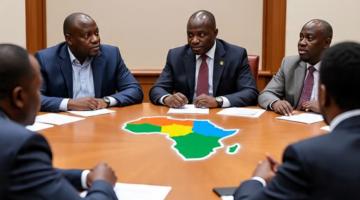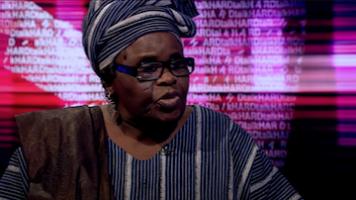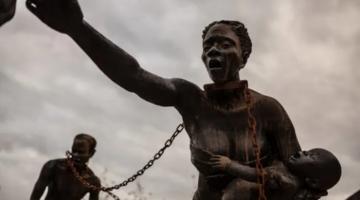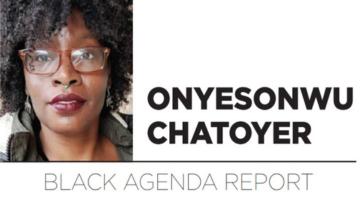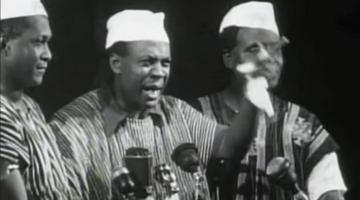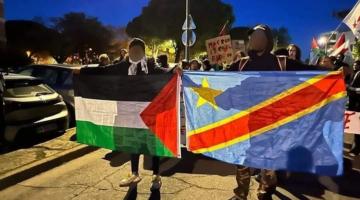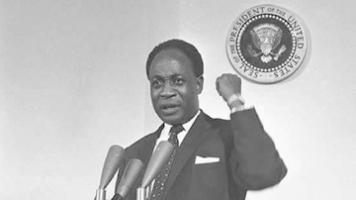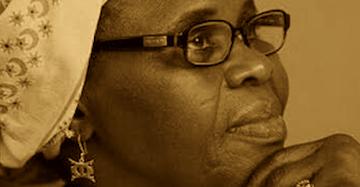The Pan-African revolutionary thought of Ahmed Sékou Touré and Kwame Nkrumah is an essential guide in seeking liberation for African people.
This article was originally published in Hood Communist.
The Africa which exists today, as well as the one we are struggling to build, is not the old Africa but a new emergent revolutionary society; a classless society in which a new harmony, a new cohesiveness, a new revolutionary African personality and a new dignity is forged out of the traditional African way of life which has been permanently changed by thousands of years of Euro-Christian and Islamic intrusions and by the historical development of the competing and conflicting slave, feudal, capitalistic and newly emergent socialist modes of production. A new emergent ideology is therefore required. That ideology is Nkrumahism-Touréism!
Nkrumahism-Touréism takes its name from the consistent, revolutionary, socialist and Pan-African principles, practices and policies followed, implemented and taught by Osagyefo Kwame Nkrumah and Ahmed Seku Touré; two of the foremost proponents and practitioners of the scientific strategy to liberate and unify Africa under scientific socialism. These principles, practices and policies are recorded in their speeches, writings, actions, achievements and life. In a larger and more complete sense, Nkrumahism-Touréism is the synthesis of the accumulated practical and theoretical contributions and achievements of centuries and generations of mass, revolutionary Pan-African and larger socialist struggles. Nkrumahism-Touréism is the application of the universal laws of revolutionary growth and development of the particular conditions of Africa and her children. Its concrete living manifestation is to be found in the creative contributions of the present day African Revolution.
Nkrumahism-Touréism provides the masses of African People with a program of human transformation turning individual defects into qualities by living the ideology. It is a Pan-African ideology that breaks the web of complexes put on us by the dominant culture and enables us to reclaim our humanity, reassert our dignity, and develop a new Revolutionary African Personality. It provides a revolutionary view of Africa and the world applying the universal principles of scientific socialism in the context of African history, tradition, and aspirations. It gives us a set of analytical tools which enable the masses of Africa People to correctly interpret, understand, redeem African culture and reconstruct Africa by way of the Cultural Revolution. Nkrumahism-Touréism provides a complete social, political, philosophical and economic theory which constitute a comprehensive network of principles, beliefs, values, morals and rules which guide our behavior, determines the form which our institutions and organizations will take; and acts as a cohesive force to bind us together, guide and channel our revolutionary action towards the achievement of Pan-Africanism and the inevitable triumph of socialism worldwide. Nkrumahism-Touréism includes the following principles:
The Primacy and Unity of Africa
The concept of the primacy and unity of Africa has its origins in the emergence of the modern Pan African movement which was characterized by our Peoples resistance to foreign domination in the 15th century. This foreign domination was soon followed by the trans-Atlantic slave trade and full blown colonialism which culminated in the European partition of Africa agreed upon by the colonial powers at the Berlin Conference of 1884 – 1885. The primacy of Africa dictates that we reject these artificially imposed colonial borders. A united Africa, the concept of continental African unity is the source of our strength and the key to our liberation. As Nkrumah says:
“African Unity gives an indispensable continental dimension to the concept of the African nation…Unity is the first prerequisite for destroying neo-colonialism. Primary and basic is the need for a union government on the much divided continent of Africa.” (Neo-colonialism, The Last Stage of Imperialism p.253) We cannot accept any other version of our land, to define Africa as anything less than the entire continent including its islands is to accept the neo-colonial strategy to divide and conquer. The primacy of Africa also speaks to our primary identity as African people. We are African. Rather than promoting our micro-national identities such as Nigerian, Ivorian, Kenyan, Ethiopian, Jamaican, Brazilian, African-American, etc. we must focus on the common denominator which is African. For us as Africans and Pan-Africanists as Nkrumah says, “the core of the black revolution is in Africa and until Africa is united under a socialist government, the black man throughout the world lacks a national home… All people of African decent, whether they live in North or South America, the Caribbean or in any other part of the world are Africans and belong to the African nation.” (Nkrumah, K Class Struggle in Africa)
The Integrity Of The Revolutionary African Personality
The African personality is the product of the evolution of African people’s conception of the world, way of life, their ethics and moral principles which are a particular reflection of African culture. This African cultural personality has been under attack by capitalism /colonialism and its extension neo-colonialism which have developed in diverse and sometimes subtle ways a moral, intellectual, and cultural superiority complex towards us as an oppressed people. Sekou Touré says, ”the science of depersonalizing the colonized people is sometimes so subtle in its methods that it progressively succeeds in falsifying our natural psychic behavior and devaluing our own original virtues and qualities with a view to our assimilation”. (Touré A. S.The Political Leader Considered As The Representative Of A Culture p.3) We are clear that the assertion of the cultural personality of an oppressed culture becomes the catalyst for its national liberation movement. Nkrumah and Touré both call for the revival and integrity of the African personality, it is this re-personalization, which constitutes the successful affirmation of the cultural personality of the oppressed culture. Re-personalization for Africans means re-Africanisation to be accomplished through the Cultural Revolution. Nkrumah says that the revolutionary African personality “expresses identification not only with Africa’s historical past, but with the struggle of the African people in the African Revolution to liberate and unify the continent and to build a just society.”(Nkrumah,K Revolutionary Path p 206). The Revolutionary African Personality is a pan-Africanist concept which identifies us not by our language, religion or geographical location but in terms of our goals which are dynamic, just and noble. Thus, the Revolutionary African Personality puts emphasis on our ideological identity over anything else. It is this ideological identity for which we must consistently struggle which can only be ultimately realized through the success of the Cultural Revolution.
Humanism, Egalitarianism and Collectivism
Humanism, Egalitarianism and Collectivism are the cluster of humanist principles which underlie traditional African society and define the African personality. Respect for human beings and social solidarity, coupled with a keen sense of fraternity, justice and cooperation between men and women are the very foundation of traditional African society.
However, Sekou Touré adds to this that “ society has been marked by the existence of two natures of life, two natures transposing themselves in thought, action, behavior and in the options of (wo)men, whether political, economic, social or cultural. In other words there are two human natures in mankind and in each People; we have the People [interests] itself and the anti-People [interests], with a permanent struggle being waged between the two, the class struggle.”…(Touré A.S. Women In Society p26)
The imperialist incursion into Africa has exacerbated these contradictions, and the battle against the anti-people’s class has dictated that we incorporate in addition to our class analysis the national and gender aspects of the struggle to include the full scope of our Pan African reality. Our ideology teaches us that the first principle of the Revolution is that everything we have earned in life is a reflection of the struggles and contributions of the People and that the masses of People are the makers of history. Included in this principle is the understanding that (wo)man is not merely treated as a means to an end but also as an end in themselves. This is the revolutionary operational principle that forms the basis for the egalitarian, humanist and collectivist character of our ideology.
In fact the (dialectical) relationship between (wo)man and the People shows that the Peoples interests are (wo)man’s interest because it is the People that generate (wo)man. Further more the value and level of the historical evolution of a People is faithfully measured by the condition of the women in society.
Dialectical and Historical Materialism
Revolutionaries want Revolution because it means a qualitative change in the oppressive conditions of the status- quo of capitalist society. In order to bring about this change, revolutionaries must study the science of Revolution. Dialectical and historical materialism is the essence of revolutionary science. Through the study and application of revolutionary ideology, which includes the scientific laws of dialectical and historical materialism, revolutionaries are able to understand the most general laws of the development of nature, human society, and thinking. It is therefore an indispensable instrument of scientific analysis and revolutionary transformation of the world. Sekou Touré says dialectical materialism “studies the general connections between the elements of nature, the laws of evolution of the objective world and the action that these laws exercise on human consciousness.”.(Touré, A.S.Strategy and Tactics of the Revolution, 52) “Dialectics is the method of scientific analysis which all [people] Christians, Muslims and atheist alike can use. Historical materialism is scientific. It objectively proves the rule of historical evolution from the production system. The changes society experienced, the succession of different regimes from the primitive community to socialism can scientifically be explained by historical materialism. Here dialectics deals with the method of analysis and explanation of facts of social and historical phenomena. Historical materialism made it possible to enlighten the process of changes recorded in every man’s life and characterized by the existence of production systems with properties and features different from one another.”(Touré, A.S. Africa On The Move vol xxiv chapterVI,Revolution and Religion p185)
Historical materialism is the dialectical method applied to history. Historical materialism analyzes and explains the historical processes of evolutionary and revolutionary changes in society characterized by the changes in production systems with properties and features which differ from one to another. Historical materialism does not list the stages of the evolution of society, it analyzes society to show the specific origin of every stage of it’ s evolution, how every qualitative change originates and the specific characteristics of every stage.
The Harmony between Religion/Spirituality and Revolution
For Nkrumahism-Touréism, a revolutionary ideology coming from African culture there is and cannot be any contradiction between Revolution and Religion. In fact Revolution and Religion/spirituality are in harmony and are complementary aspects of culture. Religion and spirituality are dominant features of the African Personality. Nkrumah points out that “The traditional face of Africa includes an attitude towards man which can only be described, in its social manifestation, as being socialist. This arises from the fact that man is regarded in Africa as primarily a spiritual being, a being endowed originally with a certain inward dignity and value” ( Nkrumah,K. Consciencism p68).
For African people there is essential harmony in our faith in the Creator and the African Revolution. To fulfill our obligations to our religion or spirituality we have an obligation to properly serve one another, Gods’ highest creation. Man and Woman, the true servants of God and the People, have the duty to fight for the liberation of those deprived of liberty, whether an individual or a People.
Revolution is the collective action and struggle of an oppressed People guided and supported by a consciously planned process (ideology) and determination to qualitatively change an old, backward and oppressive political-economic condition (capitalism), into a new progressive and just system that will work for the People’s interests (Socialism).
Religion is a set of beliefs and principles that affirm the existence of one or more supreme beings or God(s) which govern us all. Religion influences and motivates social behavior in the sense that it serves as a moral guide and provides reassurance to People that in spite of what may seem to be an overwhelmingly negative situation, through the practice of religion and serving God, peace, justice and prosperity will prevail. Religion holds respect for human dignity and human virtue. Religion can also project man’s existence onto the next world, and reserves for a future world positive or negative existence according to their life conduct in this world. However as Sekou Touré, a revolutionary who practices Islam, points out “The Revolution does not intend to deny this future world; it only wishes that the struggle against evil be not `deferred` or postponed, and this is actually what all sincere believers and the dispossessed, regardless of race, sex or nationality are pressing for.” (A. S. Touré, Revolution and Religion, Africa On The Move volxxiv).
Both Revolution and Religion share common values which they want people to reflect, and even more they want People to become the uncompromising and faithful advocates of. Some of these values are justice, peace and freedom for mankind, the nation and the laboring masses. Revolution and Religion proclaim, organize and conduct a permanent struggle, a universal struggle which, for the former is class struggle, the clash between antagonistic interests represented by classes that are opposed in the process of production, distribution and utilization of goods. While for the latter it is a struggle between good and evil, good embodying truth, justice and beauty, and evil embodying exploitation, lies, oppression, in essence all that is contrary to good.
Suffering, sweat and sacrifice are considered by both Revolution and Religion as necessary and ongoing on the long road to freedom. An important part of Religion and Revolution involves the unity of the philosophy and the behavior it advocates. In other words, not only is there is a constant struggle for the honest adherents of both Revolution and Religion to live up to the principles of each, but both Revolution and Religion have also been misused by corrupt men and women as a tool of exploitation and oppression.
Hence we should judge Revolution and Religion primarily by its principles not necessarily by its adherents. We know that our People’s faith and belief in righteousness and justice, which is upheld by their religious and spiritual faith must reinforce the need to engage in revolutionary political activity to defeat the enemies of God and the People on earth. The essential harmony of Revolution and Religion can only be affirmed in the struggle to build a just society.
The Necessity For Permanent, Mass, Revolutionary, Pan-African Political Education, Organization and Action
Following the 5th Pan-African Congress in 1945, the mass political party emerged within the mass political movements as a qualitative leap and superior form of organized mass struggle, although mass political movement remained the dominant form of struggle. Some of these political movements can and do topple neo-colonialism, as most puppet regimes are weak. But generally speaking only mass-based revolutionary parties unified by a monolithic ideology will be strong enough to seize and sustain state power when confronted with imperialism’s counter-offensive of political, economic, military and psychological terrorism. Only mass-based parties with revolutionary ideology will maintain class struggle as a strategic principle and properly organize the class struggle along clear-cut class lines to defeat the internal and external enemies of the People’s class. Only ideological monolithic mass parties of conscious cadre are capable of organizing socialist transformation.
A dialectical relationship exists between mass political movements and mass revolutionary parties. Revolutionary mass parties are a product of mass political movements. The mass movements remain relentless in struggle against oppression and for a better way of life. They serve as a source of sustenance and bulwark of defense for revolutionary party building. The wider mass movements stand as an inexhaustible reservoir of revolutionary mass potential, which ultimately must be tapped to realize our mass party. Revolutionary party building is integrally connected with and seeks to be a catalytic force with respect to ideologically transforming the broader mass movements into one revolutionary mass Pan-African party. Through ideological education and struggle, the Party seeks to progressively raise the level of class-consciousness. This transformation largely depends on acquiring the special Competence of ideologically recruiting and training cadre on a mass scale.
Revolutionary Ideology as The Greatest Asset
Nkrumahism-Touréism puts emphasis on the fact that the fundamental task facing Africa is the ideological transformation of man and woman. This transformation begins in the realm of morals and values:
“Africa needs a new type of citizen, a dedicated, modest, honest, informed man [and woman] who submerges self in service to the nation and mankind. A man [and woman] who abhors greed and detests vanity. A new type of man [and woman] whose humility is his [her] strength and whose integrity is his [her] greatness.” (Nkrumah,K. 1975 Africa Must Unite p.130).
Both Nkrumah and Touré held ideology as the crucial element and the greatest asset in the African revolution. Touré teaches us that “Culture is the framework of ideology. Culture is the container, which carries ideology as its contents.” Africa has her own culture and thus must have her own ideology thereby conforming to the African personality. Nkrumah informs us that philosophy is an instrument of ideology and must derive it’s weapons from the living conditions of African people and that it is from those conditions that the intellectual content of our philosophy must be created. Nkrumah teaches us further that…. “a united people armed with an ideology which explains the status quo and illuminates our path of development is the greatest asset we posses for the total liberation and complete emancipation of Africa. And the emancipation of Africa completes the process of the emancipation of man.” (Nkrumah, K. 1964 Why The Spark p.2).
Touré echoes Nkrumah’s position that political freedom is a prerequisite for economic freedom and adds that political revolution is part and parcel of the ideological revolution. Hence ideological revolution is the fundamental requirement for political and economic revolutions. Likewise, political independence is incomplete unless it is followed by an economic revolution. Touré shows revolutionary ideology as the critical element in developing revolutionary consciousness as he teaches us the laws of developing consciousness. When he says,
“ Without revolutionary consciousness there is no Revolution! All those who have had to conduct revolution have been able to verify this. But where does this revolutionary consciousness come from, since it is certain that it is not basic datum, nor does it come into being and develop spontaneously? History teaches that it is created and developed through ideological education and revolutionary practice. We can equally affirm that without ideological training and without revolutionary action, there can be no revolutionary consciousness.”
Sekou Touré
To achieve a decisive impact on or recruit from mass movements the Party must have ideologically strong cadre and a program of ideological development. With the mass party our masses can bring forth and strengthen the best attributes of the mass movement into the qualified expressions of the mass revolutionary party characterized by mass revolutionary consciousness and mass ideological power as the guiding force to revolutionary practice.
The All-African People’s Revolutionary Party (AAPRP) is a permanent, independent, revolutionary, socialist, Pan-African Political Party based in Africa. Africa is the just homeland of African People all over the world. Our Party is an integral part of the Pan-African and World Socialist revolutionary movement.

